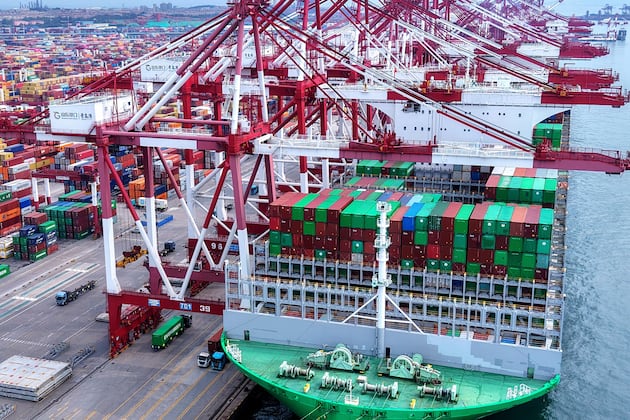Copyright Salt Lake City Deseret News

The Supreme Court of the United States heard oral arguments last Wednesday about whether the Trump administration can use the International Emergency Economic Powers Act (IEEPA) to impose broad-based tariffs on goods imported from abroad. The legal questions surrounding the use of this act to impose tariffs include whether federal law grants the president the right to impose tariffs and whether, if this specific act does grant the president this right, it was legal for Congress to delegate this authority in the case of emergencies. A decision on these questions has important consequences for the well-being of American citizens. Legal experts are mixed on the likely outcome of the proceedings. But “friend of the court” briefs provided to the court against allowing the president to use this power greatly outnumber those that support it. The justices however, find themselves in a complicated legal and political situation. Recent rulings on executive power include allowing temporarily for the removal of a member of the National Labor Relations Board, refusing to allow for the temporary removal of a governor of the Federal Reserve System and a ruling that allowed deportation of Venezuelan nationals under the Alien Enemies Act. These rulings suggest mixed feelings on the court on the general concept of increasing the autonomy of a sitting president. The issue of tariffs that lies at the center of this current case, Learning Resources, Inc. v. Trump, is one of the first times that the high court will have the opportunity to rule in a permanent manner on the limits of executive power as they directly relate to a constitutional matter. For that reason, this ruling will signal a broader stance on the court’s views on how much power a president should wield. While legal scholars and the justices on the court debate these questions, it is worth thinking about whether granting a president the power to use tariffs at his or her discretion is wise. The Constitution expressly placed the power of tariffs with Congress, beginning with Section 8 of Article I, which states: “The Congress shall have Power To lay and collect Taxes, Duties, Imposts and Excises, to pay the Debts and provide for the common Defence and general Welfare of the United States ... To regulate Commerce with foreign Nations.” Then in Section 10 of Article I, our founding document further states that, “No State shall, without the Consent of the Congress, lay any Imposts or Duties on Imports or Exports, except what may be absolutely necessary for executing it’s inspection Laws … and all such Laws shall be subject to the Revision and Controul of the Congress.” Placing this power with a large, deliberative body more closely connected to the people — as opposed to placing it with a single individual like a president — was an important differentiator between our fledgling republic of states and the European monarchs with which the founders were familiar. Keeping the power of tariffs with the Congress, as prescribed in the Constitution, reduces the extent to which the economic livelihood of American citizens is connected to the political whims of the sitting president. Take Brazil as an example. The administration imposed tariffs on Brazil because they did not agree with the Brazilian Supreme Court’s ruling that former president Jair Bolsonaro is guilty of plotting a coup. Tariffs impose economic penalties on American households, including, in the case of Brazil, increased prices for fuel, beef, sugar and coffee. That U.S. citizens should pay because the current president disagrees with legal decisions made in another country is exactly the kind of behavior that congressional power over tariffs was designed to avoid. The imposition of a 10% tariff on Canadian imports over an ad run on Canadian TV that criticized President Donald Trump’s tariff policies is another example of this kind of behavior. We add risk to the economy and to households’ well-being when we allow such an important economic variable to be under the control of one person. When a company’s profitability varies dramatically with the whims of the current president, whether because of tariffs, export constraints, or any other reason, companies will do what they can to reduce this uncertainty. One way they do this is by currying favor from the president. We’ve seen this as CEOs of American companies have flocked to Washington, D.C., to meet with Trump in an attempt to lessen the impact of his volatile tariff and broader industrial policy. This behavior puts the energy throughout the economy on the president, instead of on developing new products, new markets, and new opportunities for American homes and businesses. A country run on caprice disengages the real power of the economy, which is the mental and physical labor of its employees, from the work of production. Just as a faulty transmission keeps an engine’s horsepower from driving the wheels of a car, a government that focuses energy on a leader makes it hard for American producers to make decisions that will improve the lives of American households. Assessing what households want to consume, instead of worrying about the wishes of the current president, is hard when consequential policy decisions are consolidated in one person. While the Supreme Court may attempt to rein in the power of the president to use tariffs by ruling against the government over tariff policy, the real power to create an environment that successfully harnesses the power of the American economy lies in Congress. This power was granted to Congress in the Constitution. It is time for them to reclaim it.



